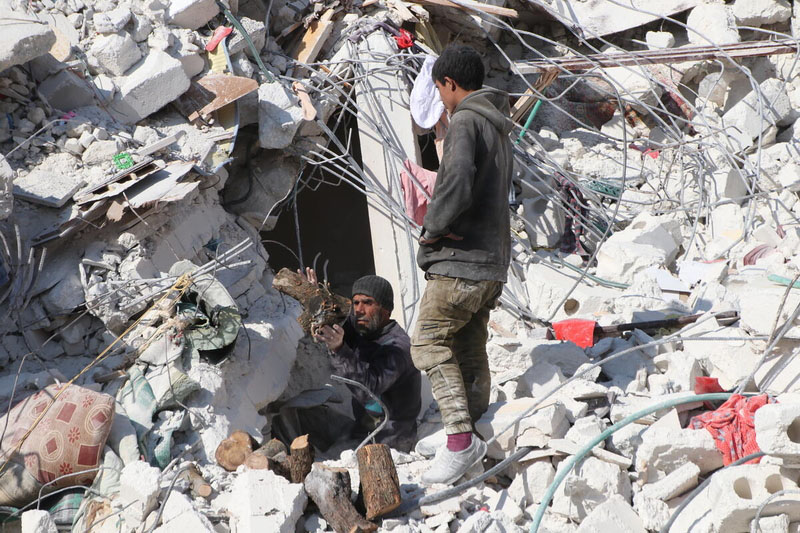World Vision warns of spiraling health crisis and spread of disease in Syria following earthquakes
Media Contact :
February 10, 2023
Senior Public Relations Manager
[email protected]
m 404-735-0871
Media Contact :
February 10, 2023
Senior Public Relations Manager
[email protected]
m 404-735-0871

AMMAN (February 10, 2023) – Global humanitarian organization World Vision is concerned about growing health needs in Syria following the 7.8 magnitude earthquake that hit northwest Syria and southeast Turkey (officially the Republic of Türkiye) on February 6.
Humanitarian aid has been slow to reach northwest Syria, with the very first cross-border shipments arriving yesterday, three days after the earthquake hit. Medical supplies are particularly needed as local stocks are quickly running out.
Health facilities continue to face the task of responding to the enormous need with very limited resources. Injured women, men, and children have filled emergency rooms in the past few days, and needs are growing as more survivors are pulled from the rubble in critical condition. Doctors have warned that children are at risk of developing hypothermia and being exposed to waterborne diseases such as cholera or Hepatitis A due to the damage to shelters and water infrastructure.
The health situation in northwest Syria was already critical prior to the earthquake, as a cholera outbreak declared last September put the lives of hundreds of thousands of children at risk. Malnutrition and stunting was also already on the rise, with mothers and children particularly impacted. This situation will only deteriorate if humanitarian aid is not scaled up.
“This earthquake has created the perfect environment for a health crisis — fueled by reduced healthcare capacity and disease outbreaks,” said Johan Mooij, World Vision’s national director for the Syria crisis response. “We are working tirelessly to make sure the most urgent needs are covered during these very challenging times.“
World Vision teams responded quickly on Monday to assess the most urgent needs on the ground. We have provided 17,000 liters of fuel to health facilities as well as search and rescue teams in northwest Syria to enable them to keep transporting and treating the wounded. World Vision has also provided much-needed heaters and fuel to more than 1,605 impacted households across the northwest region where people are seeking refuge in collective shelter. This will allow displaced families to have power and stay warm until more permanent solutions are found.
“Humanitarian access must remain open and assistance must be scaled up so that we can avoid a much bigger crisis,” Mooij said. “Children are in desperate need of support in Syria. Even before Monday’s earthquake, conflict had meant that hundreds of thousands were already struggling to survive and now their homes have been devastated, leaving them with no shelter, no schools, and no medical services.”
About World Vision:
World Vision is a Christian humanitarian organization conducting relief, development, and advocacy activities in its work with children, families, and their communities in nearly 100 countries to help them reach their full potential by tackling the causes of poverty and injustice. World Vision serves all people regardless of religion, race, ethnicity, or gender. For more information, please visit www.WorldVision.org/media-center/ or on Twitter @WorldVisionUSA.